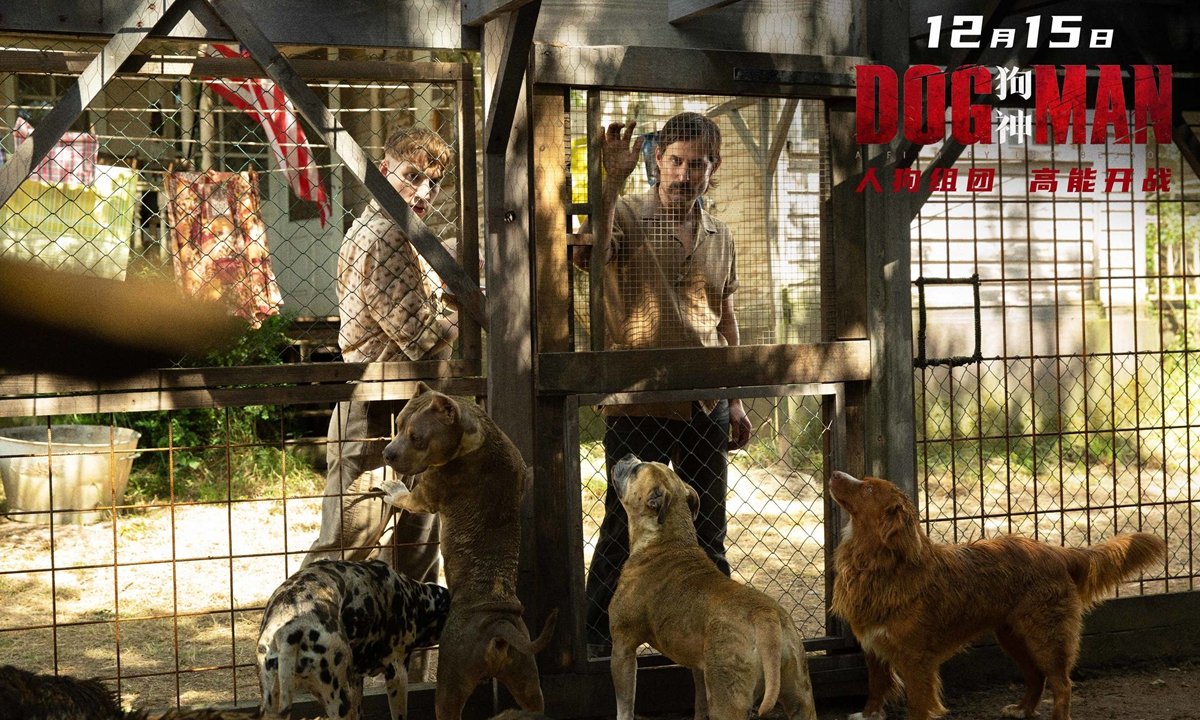Luc Besson’s newest film, ‘Dogman’, is poised to make a notable impact on the Chinese box office, especially at a time when domestic films have been dominating the scene throughout 2023. This follows his previous film, ‘Valerian and the City of a Thousand Planets’, known for its interstellar adventures and spectacular visual feast. However, ‘Dogman’ shifts gears, offering a deeply moving story about resilience in the face of life’s challenges, set to release in Chinese cinemas on December 15.
The film made a profound impression at the Pingyao International Film Festival in Shanxi Province in October, where it resonated deeply with the audience, many of whom were moved to tears. This marked Besson’s first visit to China in six years, and he was visibly touched by the audience’s reaction. Reflecting on the experience, Besson shared how he could feel the audience’s emotional response and appreciated their overwhelming appreciation for the film.
Besson’s emotional connection with the audience was not unique to China. At the Venice Film Festival, the film received a standing ovation lasting six minutes, a testament to its universal appeal. Despite having seen his film numerous times, Besson admits that he still finds himself swept up in its emotional narrative.
‘Dogman’ tells the story of a young man named Douglas who, after enduring abuse at home, becomes disillusioned with humanity. His only solace comes from his bond with dogs, leading him on a path of revenge against his abusive father. The film’s genesis came from an article Besson read about a boy who was caged by his father, sparking the director’s imagination about the boy’s potential future paths.
The film navigates the complexities of human pain and the choices one makes in response to it. Besson’s message is clear: despite suffering, one has the power to choose a path of goodness. He echoes the ancient Chinese belief in the inherent goodness of people, arguing that circumstances often dictate their path but don’t define their potential.
Caleb Landry Jones, who plays the protagonist, delivers a performance that Besson rates beyond exceptional. However, other cast members, particularly the dogs, presented unique challenges. Casting the dogs was both fun and difficult, requiring careful selection to ensure a diverse representation, mirroring the diversity of the world. Managing their performances demanded patience and a deep understanding of their behavior.
Besson, who has garnered significant recognition in China for his previous works, maintains a unique perspective on audience feedback. He doesn’t actively seek out opinions on his films, believing that his role is to create, not to engage in the subsequent dialogue. He compares his work to the awe-inspiring architecture of the Forbidden City, suggesting that the creators’ focus was on the creation itself, not on future admiration.
During his visit to China, Besson noted the dynamic changes in the Chinese film industry. Meeting with prominent Chinese directors and actors, he observed a vibrant and burgeoning industry, predicting that China’s film market might soon reclaim its position as the world’s largest. The film industry’s rebound post-pandemic, with revenues surpassing 50 billion yuan, underscores this potential.
Besson’s connection to Chinese culture runs deep. During his stay, he expressed a desire to further immerse himself in the culture and interact with the people, seeking a more profound understanding of this complex and rich civilization. He is also open to collaborations with Chinese filmmakers, offering his experience to guide young directors and draw inspiration from their energy. As ‘Dogman’ prepares to touch the hearts of audiences in China, it stands as a testament to Besson’s enduring appeal and the universal language of cinema.
READ MORE:
